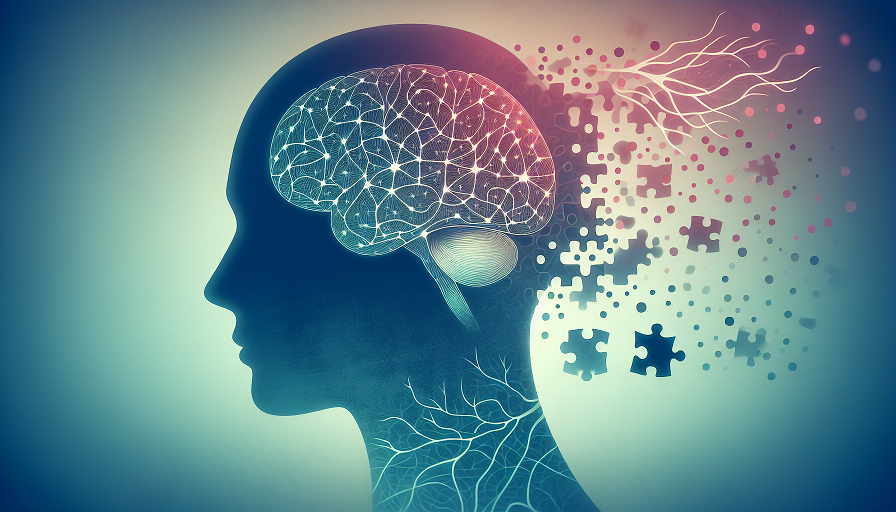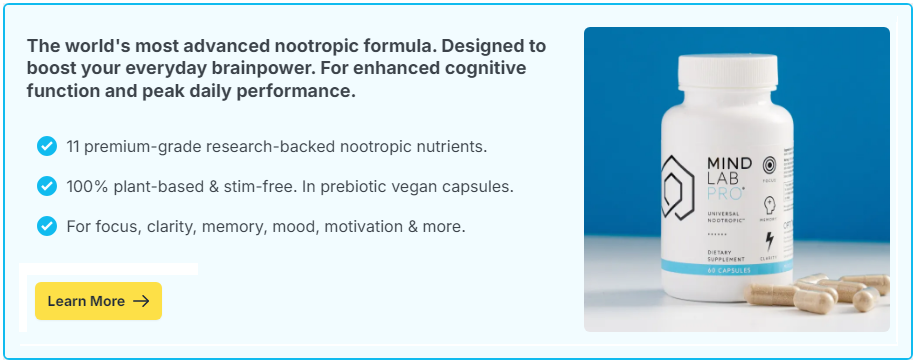
Writing music is an art form that stirs emotions, tells stories, and connects people. But have you ever wondered how songwriters tap into their creative genius to craft melodies and lyrics that captivate listeners? The answer often lies within the complex workings of the brain. Recently, there’s been a buzz about nootropics—potential brain-enhancing substances—and their ability to amplify creativity, particularly in fields like songwriting. Here we examine whether nootropics can indeed give your brain a creative edge and what role brain chemistry plays in musical creativity.
Contents
Understanding Nootropics
Nootropics, sometimes called “smart drugs,” are substances that claim to improve cognitive functions such as memory, creativity, and motivation. These substances can range from natural ingredients like caffeine and ginseng to synthetic compounds designed to enhance brain performance. Not all nootropics are created equal, and their effects can vary significantly between individuals. Here’s a simple breakdown of how they are thought to work:
- Boosting Neurotransmitter Production: Nootropics may increase the levels of neurotransmitters—chemicals that transmit signals in the brain. Common neurotransmitters include dopamine, serotonin, and acetylcholine. Each plays a unique role in brain functions related to mood, learning, and focus.
- Enhancing Brain Blood Flow: By improving circulation to the brain, nootropics can increase the delivery of oxygen and nutrients, potentially leading to sharper mental clarity and enhanced concentration.
- Protecting Brain Cells: Some nootropics have antioxidant properties that may help protect the brain from damage caused by aging or stress.
The Role of Brain Chemistry in Creativity
The brain is a complex organ where creativity blossoms, often in mysterious ways. Brain chemistry—a dance of neurotransmitters and electrical signals—plays a pivotal role in how creative processes like songwriting unfold. Here’s how:
Dopamine: The Master of Motivation and Reward
Dopamine is often referred to as the “feel-good” neurotransmitter. It’s heavily involved in the reward system, helping us feel pleasure and satisfaction. For musicians, dopamine can enhance motivation and the joy felt when expressing ideas through music. High levels of dopamine are linked to increased creative output, as it encourages experimentation and risk-taking—key components of creative expression.
Serotonin: Mood and Emotion Regulation
Serotonin is another neurotransmitter crucial for maintaining mood balance. Songs often express or evoke strong emotions, and a stable serotonin level can help artists tap into those feelings effectively. Low serotonin levels might lead to mood swings or difficulties in finding the right emotional tone of a song.
Acetylcholine: The Memory and Learning Enhancer
Acetylcholine is essential for learning and memory, two vital elements when composing and remembering musical structures or lyrics. Enhancing acetylcholine activity might aid in sustaining focus and improving recall, assisting songwriters in their creative endeavors.
How Nootropics Might Aid Songwriting
Combining the advantages of nootropics with the needs of musical creativity could present some intriguing possibilities for songwriters:
- Enhanced Focus and Attention: By boosting neurotransmitters like acetylcholine, nootropics can potentially help songwriters focus more deeply on their craft, overcoming distractions and maintaining a creative flow.
- Improved Mood and Creativity: Some nootropics might boost serotonin and dopamine levels, helping maintain a positive mood and enhancing the creative process.
- Memory and Recall: With heightened acetylcholine activity, songwriters might find it easier to recall and integrate previous musical ideas or lyrics into new compositions.
Potential Risks and Considerations
While nootropics offer exciting possibilities, they aren’t without risks and should be used with caution:
- Side Effects: Some nootropics might cause side effects such as headaches, insomnia, or digestive issues.
- Lack of Long-Term Studies: Many nootropics lack long-term research, so their effects on the brain over prolonged use are not well understood.
- Individual Variability: As each person’s brain chemistry is unique, nootropics can have different effects, with some individuals experiencing little to no impact on creativity.
Practical Tips for Songwriters
If you’re considering nootropics to enhance your songwriting process, it’s important to approach them thoughtfully:
Consult a Professional
Before starting any nootropic regimen, always consult with a healthcare professional to ensure it’s safe for you, especially if you have underlying health conditions or are taking other medications.
Start with Natural Options
Consider starting with natural nootropics known for enhancing brain health and cognition, such as:
- Caffeine: Found in coffee, it can sharpen focus and improve alertness.
- Ginkgo Biloba: This herb is believed to boost memory and cognitive speed.
Track Your Experience
Keep a journal of your experiences with nootropics, noting any changes in mood, focus, or creativity. This can help determine if they’re beneficial for your songwriting process.
Understanding the connection between brain chemistry and creativity reveals why songwriting is such a deeply personal and powerful art form. While nootropics present intriguing possibilities for enhancing this process, they are not a magical solution. Ultimately, creativity comes from within, influenced by a myriad of factors, including our brain’s unique chemistry, life experiences, and emotions. As you explore the potential of nootropics, remember to balance scientific ventures with your natural creative instincts.

